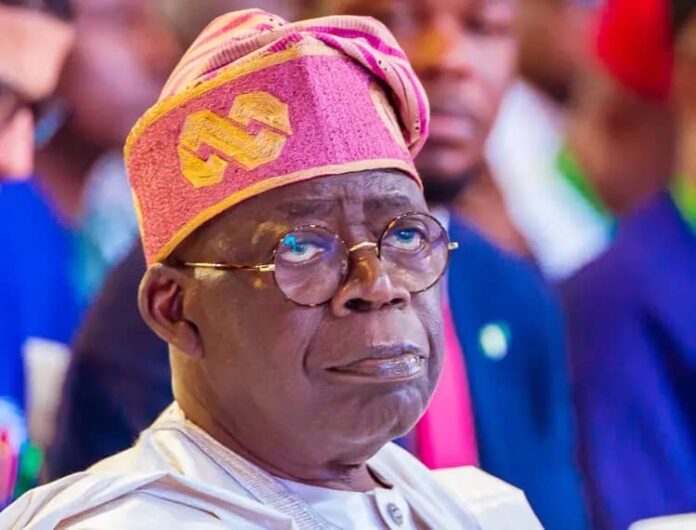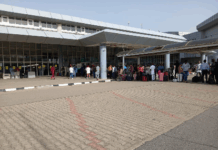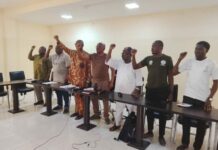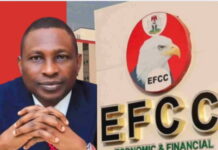Tinubu’s reforms fail to reduce poverty as 139 million Nigerians struggle – World Bank
The World Bank has reported that, despite an expansion of Nigeria’s economy and an increase in government revenue, the national poverty rate remains alarmingly high.
The Bretton Woods institution estimates that 139 million Nigerians are living in poverty in 2025, a declaration that comes even after the major economic reforms implemented by President Bola Ahmed Tinubu’s administration.
Mathew Verghis, World Bank Nigeria Country Director, spoke at the launch of the Nigerian Development Update (NDU) in Abuja, where the bank also projected Nigeria’s economy would grow by 4.4 per cent in 2027.
READ ALSO: Tinubu orders reduction of ₦8.2 million Hajj fares for 2026
The World Bank’s assessment directly follows recent comments by President Tinubu, who had praised his administration for the country’s economic rebound. During a live nationwide broadcast commemorating Nigeria’s 65th Independence anniversary, Tinubu declared that Nigeria has “turned the corner” on its economic and social challenges.
“I am pleased to report that we have finally turned the corner. The worst is over. Yesterday’s pains are giving way to relief. I salute your endurance, support and understanding,” the president said. “I will continue to work for you and justify the confidence you reposed in me to steer the ship of our nation to a safe harbour.”
He had stressed that his administration’s reforms were repositioning the country on the path of stability, growth, and self-sufficiency, assuring citizens that the sacrifices of the past two years were beginning to yield measurable results.
READ ALSO: Tinubu preaches peace, unity as APC chairman buries mother
Daily Trust reports that the removal of the petrol subsidy has notably freed up more revenues for the federal government, leading to increased state allocations. Monetary policy reforms have also reportedly seen foreign reserves rise to over $43 billion, and the exchange rate market has stabilized, with inflation easing for the fifth consecutive month to 20.12 per cent in August.
Stabilisation Gains Not Reaching Households
Despite these financial indicators, the World Bank’s Country Director highlighted the struggle faced by ordinary Nigerians. “So, these results are exactly what you need to see in a stabilisation. These are big achievements. However, despite these stabilisation gains, many Nigerians are still struggling. Most households are struggling with eroded purchasing power,” Verghis said.
“In 2025, we estimate that 139 million Nigerians live in poverty. So, the challenge is clear: how to translate the gains from the stabilisation reforms into better living standards for all.”
READ ALSO: Tinubu declares “the worst is over” as Nigeria marks 65th independence
He prescribed three critical actions the federal government must take to address the high rate of poverty: “Food inflation affects everybody but particularly the poor and has the potential to undermine political support for the reforms. Use public resources more effectively ensuring that spending drives real development results that benefit people and three, expanding the safety net so that the poorest and vulnerable get support,” he added.
Economic Outlook and Inflation Concerns
The World Bank projected Nigeria’s economy would grow by 4.4 per cent in 2027, a slight increase from the 4.2 per cent earlier projected for 2025. This growth is expected to be driven by services, supported by agriculture and the non-oil industry.
Samer Matta, the World Bank’s Senior Economist for Nigeria, noted in a presentation titled ‘From Policy to People: Bringing the Reform Gains Home’ that inflation is expected to gradually ease but remain elevated. He stressed the need for “sustained monetary discipline and structural reforms to tackle food prices, the biggest tax on the poor.”
REQD ALSO: Poverty as the Root of Corruption in Nigeria, by Amos Yohanna
According to the NDU, Nigeria’s economy expanded by 3.9 per cent year-on-year in the first half of 2025, up from 3.5 per cent in the same period of 2024. The report stated: “The country’s external position has strengthened, with foreign reserves exceeding $42 billion and the current account surplus rising to 6.1% of GDP, supported by higher non-oil exports and lower oil imports. On the fiscal side, despite lower oil prices, the federal deficit is projected at 2.6% of GDP in 2025, broadly unchanged from 2024, while public debt is expected to decline for the first time in over a decade — from 42.9% to 39.8% of GDP.”
However, the NDU cautioned that these macroeconomic gains have yet to translate into tangible improvements in people’s lives, noting that poor households, who spend up to 70 per cent of their income on food, have seen the cost of a basic food basket rise fivefold between 2019 and 2024.
Experts and Citizens Weigh In
Professor Uche Uwaleke, a member of the Daily Trust Board of Economists, described the NDU report as a “wake-up call” for the authorities, stating: “It recognises that macroeconomic gains achieved so far have yet to translate to improved welfare conditions for the average Nigerian with over 130 million people still in multidimensional poverty.”
Dr Omotayo Lawal, an economist at Al-Hikmah University, Ilorin, noted that the report suggests the recorded growth is “not inclusive” and that the policy reforms are either ineffective or their benefits are “not filtering down to the poor and vulnerable.” He attributed these issues partly to a lack of policy continuity across administrations, stating: “Every new administration… tends to discard the economic policies of its predecessor and introduce new ones. This discontinuity disrupts progress and weakens institutional memory.”
READ ALSO: Yobe govt, Action Against Hunger support fire victims in Nguru, Karasuwa
Meanwhile, the pan-Yoruba socio-political organisation, Afenifere, dismissed the government’s claim of an economic turnaround as “media spin.” In a statement by its leader, Oba Oladipo Olaitan, and National Publicity Secretary, Prince Justice Faloye, the group argued that claiming the economy had stabilized “is a euphemism that the economy has reached rock bottom after being pushed off the cliff with subsidy removal and devaluation policies.”
“When a $10 billion subsidy with $200 billion production multiplier effects is removed, when the economy falls by $200 billion, it would stop falling. The question is what happens to the 7 million businesses that collapsed and tens of millions pushed into poverty, are they just collateral damage of self-induced economic destabilisation mislabelled as economic reforms?” the statement read.
“The fall of real wages by 300 per cent make claims of an economic turnaround unfounded… The Nigerian worker has been economically reformed to slave wages, with even those at the pinnacle of the academia and armed forces paid peanuts.”
READ ALSO: Prioritise welfare of Nigerians, invest more in poverty eradication, Tinubu tells governors
Some citizens interviewed also expressed skepticism. Rajih Edatomola described the economy as “confusing and challenging,” while Babatunde Rahman argued that most government reforms are “stifling the growth of MSME” and that many institutions are frustrating genuine entrepreneurs.
However, Ibrahim Rufai, a Kano resident, offered a different perspective, noting that prices of food crops like rice, beans, and corn are falling due to the lifting of import restrictions. He also expressed worry, saying that farmers like him, who invested heavily in expensive fertilizer, may suffer losses.
“My only hope and prayer is that government will find a way of incentivizing farmers by buying their harvested crops above the existing market price just to encourage them to continue,” he said.
Another resident, Hamza Bunkure, stated he has “not seen any economic improvement in the country” because people still find it difficult to buy food and essential services remain expensive.
Follow the Neptune Prime channel on WhatsApp:
Do you have breaking news, interview request, opinion, suggestion, or want your event covered? Email us at neptuneprime2233@gmail.com





